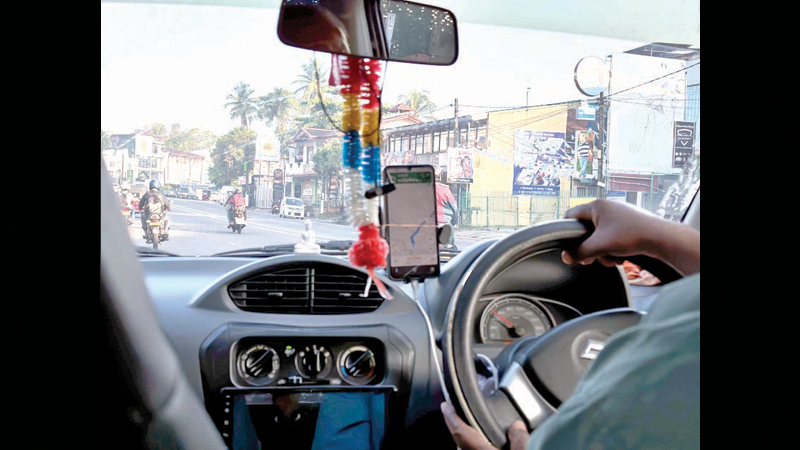The digital revolution has ushered in a new era of work, transforming the landscape of employment across the globe. Sri Lanka, like many nations, has witnessed a significant rise in the gig economy, a model characterised by short-term contracts, freelance work, and platform-mediated labour.
While this shift offers undeniable benefits, particularly in a country grappling with economic challenges, a closer look, informed by research by CSF, reveals a concerning undercurrent of precarity that demands our attention.
Recent reports highlight Sri Lanka’s prominent position in the online freelancing sphere, ranking among the top 15 countries globally in terms of gig workers on major platforms. This trend is fuelled by a confluence of factors, including the allure of flexibility and the pressing need to supplement income in the face of economic hardship.
The platform economy has provided a lifeline for many, offering opportunities that transcend geographical boundaries and traditional employment structures. For those in ride-hailing and delivery services, the gig model has offered a means of earning a living, especially in the wake of compounding crises.
The initial promise of the gig economy – autonomy, flexibility, and the ability to be one’s own boss – is undeniably attractive. For individuals seeking to balance work with other commitments or those in need of supplementary income, these platforms offer a seemingly accessible route. The rise in internet penetration across the country has further fueled this trend, creating greater awareness of online work opportunities and drawing a growing number of individuals into the digital labour market.
However, the rosy picture often painted by proponents of the gig economy quickly fades when we delve into the realities faced by many Sri Lankan gig workers. The very factors that initially draw individuals to this model – the lack of traditional employment structures – also expose them to a range of vulnerabilities. The research paints a stark picture of a workforce operating under conditions of increased precarity, a situation exacerbated by several key factors.
One of the most significant concerns is the pervasive use of algorithmic management. Digital platforms wield considerable power over their workers through complex algorithms that dictate task allocation, payment structures, incentives, and even the deactivation of accounts.
This algorithmic oversight often lacks transparency and can lead to arbitrary decisions that leave workers feeling powerless and insecure. The very nature of this management system can erode the autonomy that initially attracted workers, replacing it with a form of digital surveillance and control.
The absence of traditional social security nets and employment safeguards leaves gig workers highly vulnerable. Unlike conventional employees, they often lack access to benefits such as health insurance, paid leave, and retirement plans. This absence of a safety net means that any disruption in work, whether due to personal illness, economic downturns, or platform-related issues, can have severe and immediate consequences on their livelihoods. The economic crises that Sri Lanka has faced in recent years have starkly illustrated this vulnerability, with lockdowns and fuel shortages directly impacting the ability of gig workers to earn a living.
The economic crisis in Sri Lanka has further exposed the fragility of the gig economy for many. Ride-hailing and delivery services faced significant challenges due to fuel shortages, forcing many workers to reduce their operational areas or even temporarily leave the platforms. Those who continued to operate often saw a decrease in their income due to increased costs and reduced demand. Similarly, online freelancers faced hurdles due to frequent and lengthy power cuts, hindering their ability to complete time-sensitive work and potentially impacting their earnings on highly competitive platforms.
While the immediate crisis may have eased somewhat, the underlying precarity persists. The gig economy, in its current form, often fosters a culture of individual risk-bearing, where the responsibility for navigating economic uncertainties and securing a stable income falls squarely on the shoulders of the individual worker. This can lead to a cycle of instability and stress, impacting not only financial well-being but also mental and physical health.
It is crucial to acknowledge the opportunities that the gig economy presents for Sri Lanka. It offers a potential avenue for foreign exchange earnings and can contribute to addressing unemployment by connecting local talent with a global clientele. However, these benefits must not overshadow the pressing need to address the inherent precarity within this model.
Moving forward, Sri Lanka must consider proactive measures to mitigate the risks associated with the gig economy and ensure a fairer future of work. This requires a multi-pronged approach involving policymakers, platform companies, and worker representatives.
First, there is a need for greater regulation and oversight of digital labor platforms. This could involve establishing clear guidelines regarding fair pay, working conditions, and dispute resolution mechanisms. Transparency in algorithmic management is also paramount to ensure that decisions affecting workers are fair and justifiable.
Second, exploring ways to extend social security benefits to gig workers is essential. This could involve innovative approaches to provide access to health insurance, retirement plans, and other essential protections, perhaps through contributions from both workers and platforms.
Third, empowering gig workers through collective action and representation is crucial. Supporting the formation of worker associations and providing a platform for their voices to be heard can help to advocate for their rights and interests.
The rise of the gig economy in Sri Lanka is an undeniable reality of the modern world. While it offers certain advantages, we cannot afford to ignore the precarious conditions faced by a significant portion of the workforce.
By acknowledging the challenges and taking decisive action, Sri Lanka can harness the potential of the gig economy while ensuring a more equitable and secure future of work for all its citizens. The time to act is now, before the promise of flexibility gives way to a pervasive and unsustainable precarity.
– This article is based on a forthcoming report on the gig economy by Anisha Gooneratne and Nimaya Dahanayake, at the Centre for a Smart Future (CSF)




